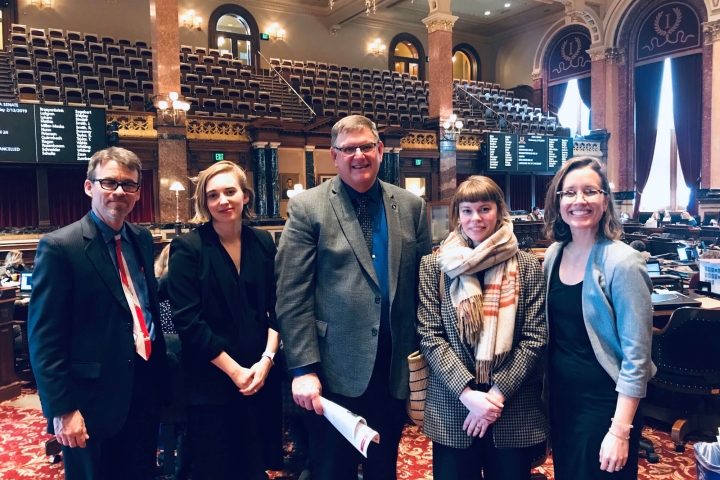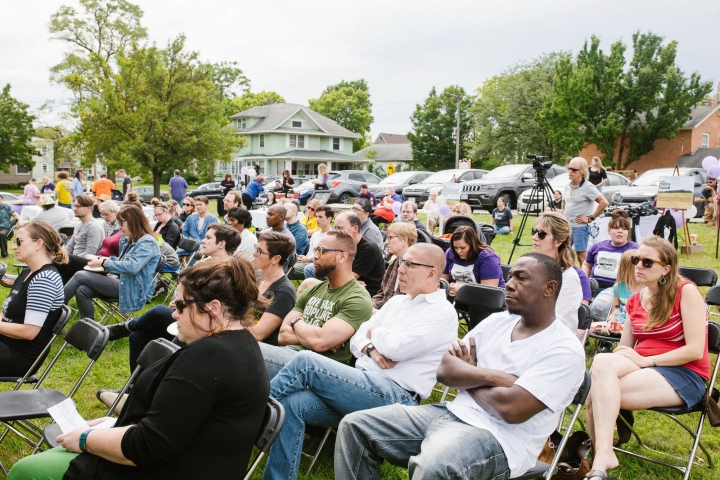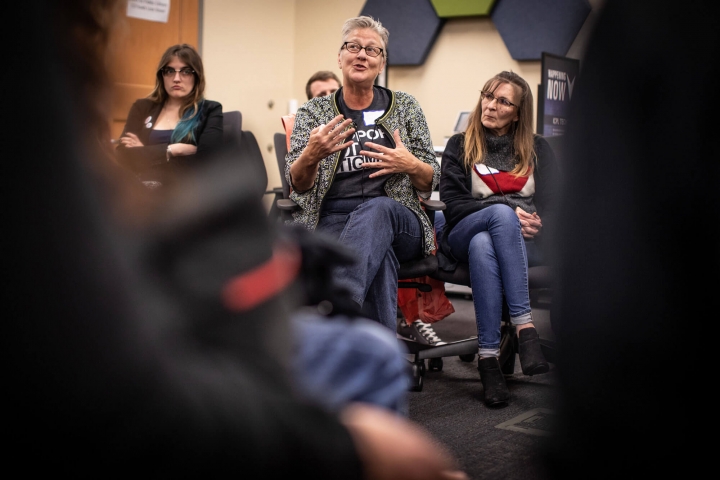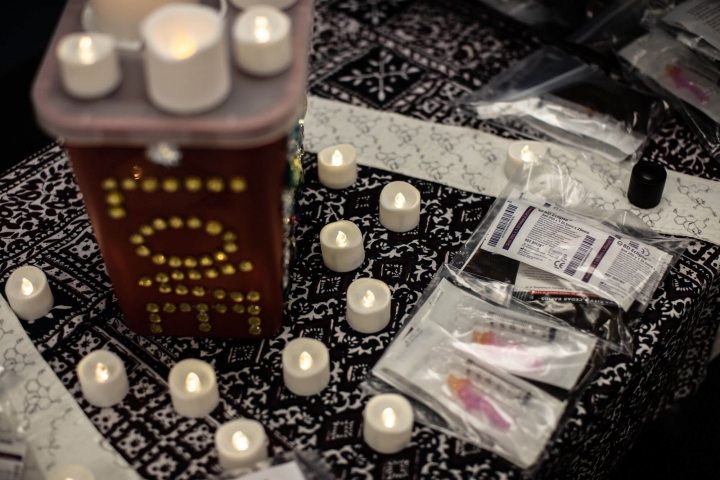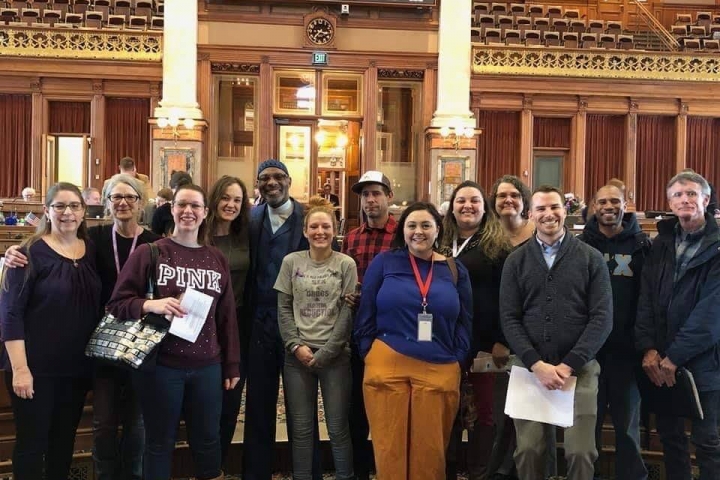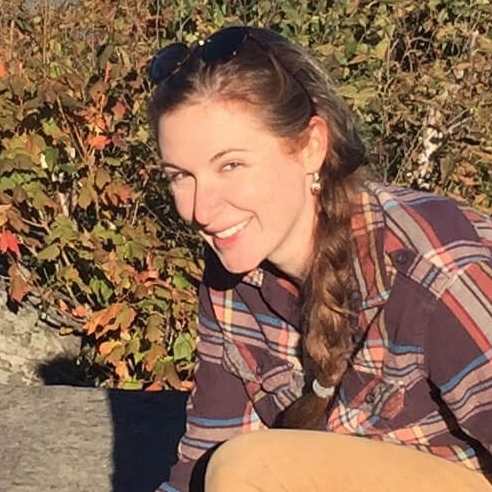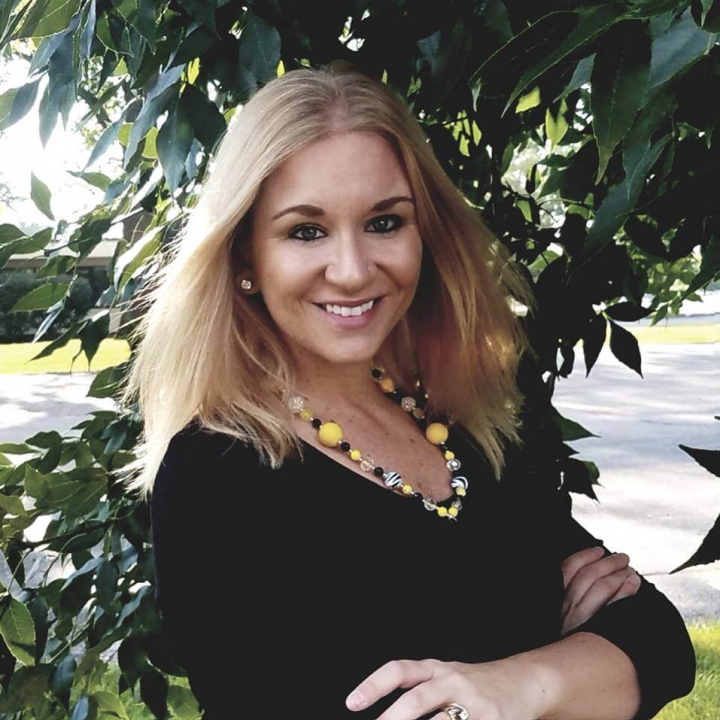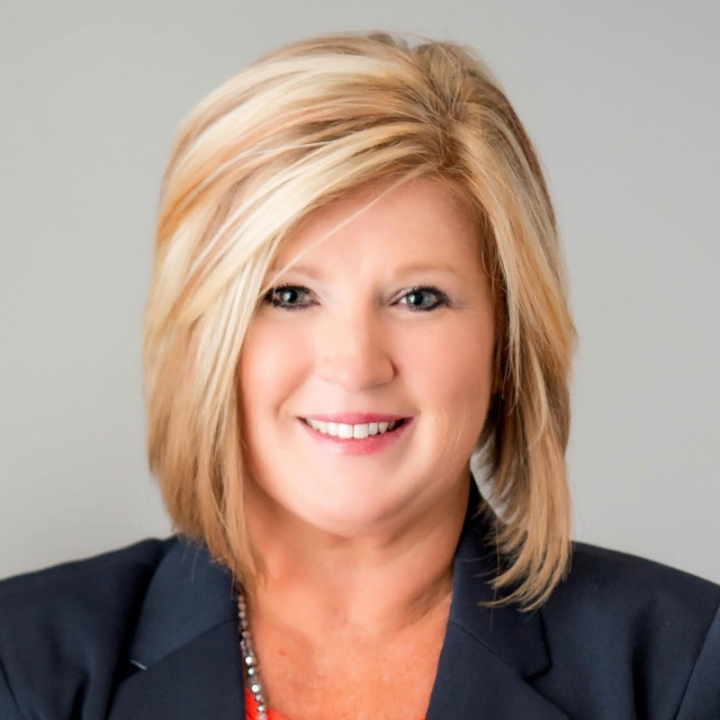Our Story
Iowa Harm Reduction Coalition (IHRC) is a community based nonprofit organization (501c3) that provides compassion-based services for and advocates with people who use drugs.
Founded in 2016, IHRC’s mission is “to create health equity in Iowa communities through advocacy, education, and drug user health services. IHRC works to build power among people impacted by the war on drugs, including people who use drugs and communities of color; is committed to the acceptance of stigmatized and minoritized peoples, people who use drugs, and people who engage in sex work; and is committed to dismantling systems of race, class, and gender-based privilege.” IHRC’s current programming is divided across three domains: health and social services; advocacy and community organizing; and training and education.
What We Do
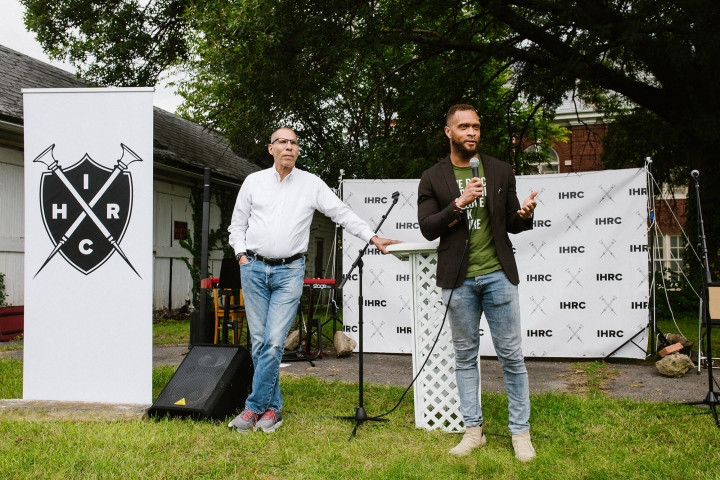
Policy
IHRC operates a policy program and works at both the state and local level to research, write, and educate on policies that improve the lives of people who engage in drug use and sex work, including policies that reduce overdose, prevent infectious disease transmission, improve access to health care, decrease criminalization and create opportunities for support and healing.
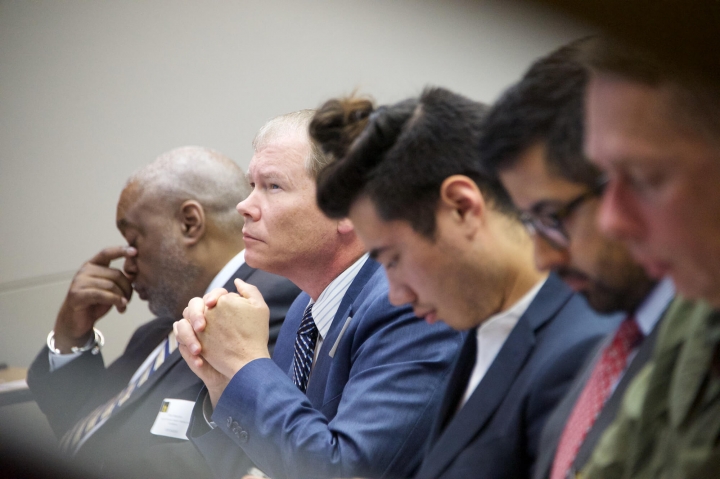
Training
IHRC also offers training, education, and technical assistance across Iowa to professionals working in law enforcement, health care, public health, substance use prevention and treatment, public policy, and social services. The majority of the training and technical assistance provided assist organizations in improving their ability to work with communities of people who use drugs and/or incorporate overdose prevention services into their existing programs. An additional component of this programming includes an annual conference in Iowa City, which brings together over 1,000 stakeholders from around Iowa and experts from around the world in order to create opportunities for Iowans to learn directly from those who have implemented successful solutions to address drug related harms.
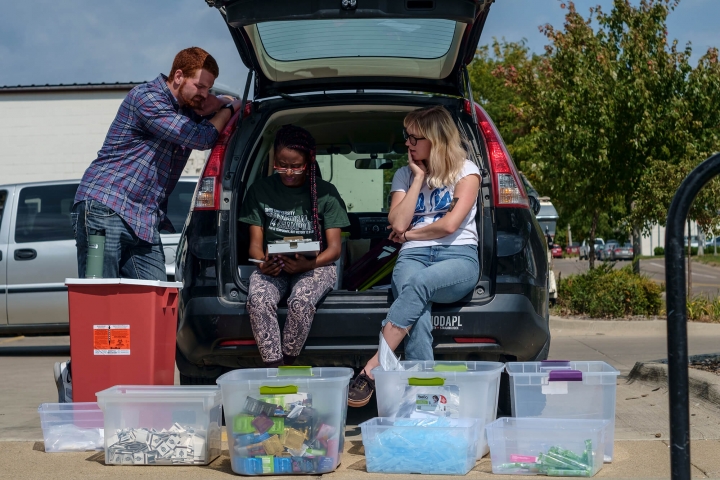
Health and Social Services
IHRC provides health and social services to people impacted by substance use (primarily injection drug use, opioids, heroin, methamphetamine, cocaine, and crack cocaine) in five Iowa metro areas: Cedar Rapids, Davenport, Des Moines, Dubuque, and Iowa City. The Centers for Disease Control and Prevention (CDC) maintains a framework to guide the development of community services for communities impacted by substance use and injection drug use. This Drug User Health Framework guides IHRC’s services, and services focus primarily on: a) prevention of new infectious disease cases through the sharing and re-use of intravenous drug injection equipment (eg. syringes), including HIV, hepatitis A, B, and C, bacteremia, endocarditis, abscess, cellulitis, and other bacterial infections; b) treatment of infectious disease through case management and linkage to treatment programming; c) overdose prevention through education and naloxone distribution (the medication that reverses an opioid or heroin overdose); d) support groups for and linkage to treatment for addiction and substance use disorders; and e) linkage to and enrollment in rapid re-housing programs. IHRC uses a low-barrier service delivery model and provides services in settings that are non-traditional for public health. Services are provided in an office-based or drop in setting, as well as via home deliveries and through outreach in the community at adult entertainment clubs, liquor stores, bars, motels, free meal programs, homeless shelters, laundromats, shooting galleries, tent encampments, under bridges, halfway houses, and other spaces that are occupied by people who are harmed by the war on drugs. IHRC serves just over 5,000 unique people who use drugs annually, with 45% experiencing housing insecurity, 43% identifying as female, and 38% identifying as people of color.
Who We Are
IHRC’s work is guided by a Board of Directors and employs both full-time staff and part-time staff, many of whom have personal experience with injection drug use, opioid overdose, and/or addiction. Staff members include peer outreach specialists (similar to community health workers), who work in their community and amongst people with whom they have long-standing relationships in order to provide access to IHRC’s overdose prevention and infectious disease prevention services. IHRC has also trained over 350 volunteers to conduct community outreach.
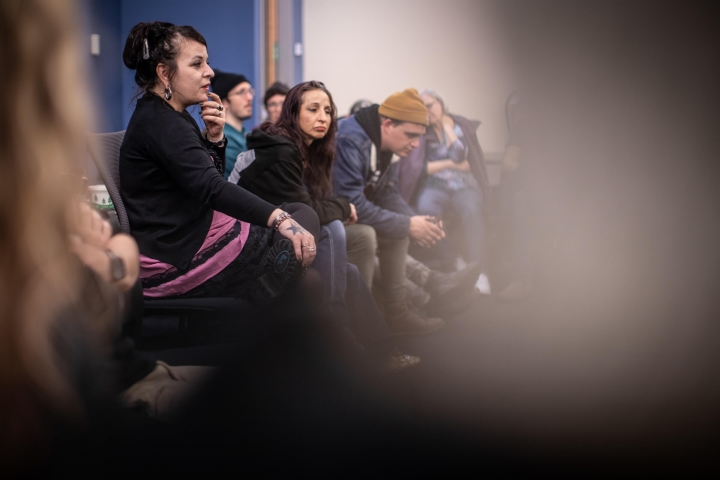
When We Fight We Win
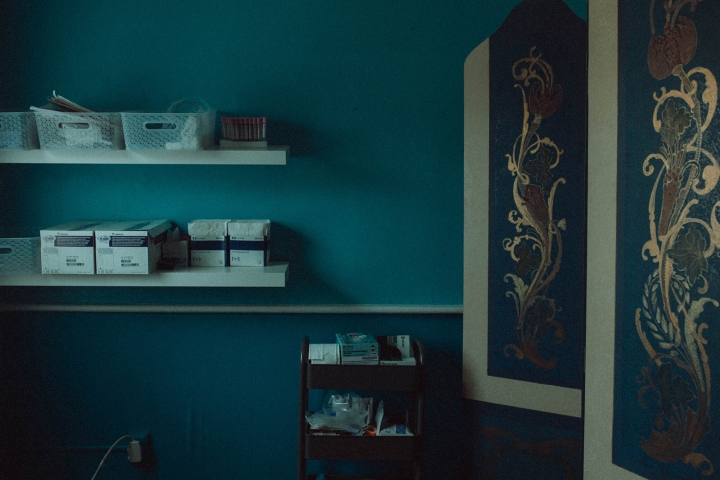
Reducing HCV Infections
The Iowa Department of Public Health (IDPH) attributed an 18% decrease in new HCV infections between 2016 and 2017 in the state to IHRC’s hepatitis C prevention, testing, and treatment linkage program for IV drug users.
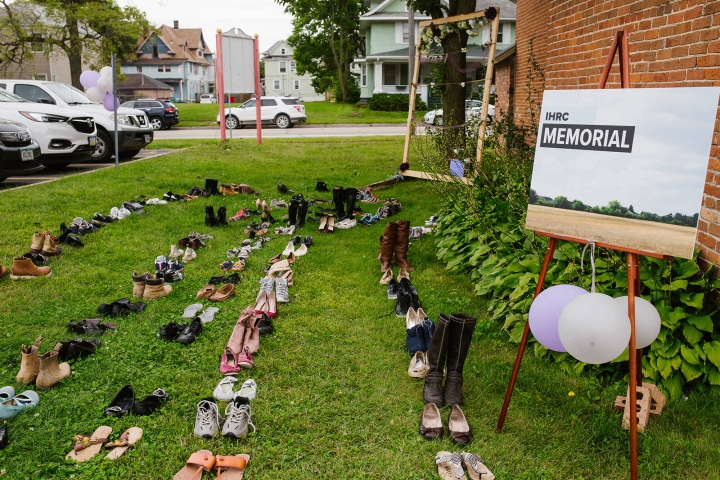
Reducing Overdose Deaths
Between July 1, 2017 and August 31, 2019, IHRC distributed 8,666 naloxone rescue kits and received reports of 1,957 overdose reversals from these kits, meaning nearly two thousand lives were saved from opioid overdose as a result of IHRC’s program. IDPH announced in the summer of 2019 that overdose death rates for 2018 and 2019 in Iowa have reached their lowest point since 2008.
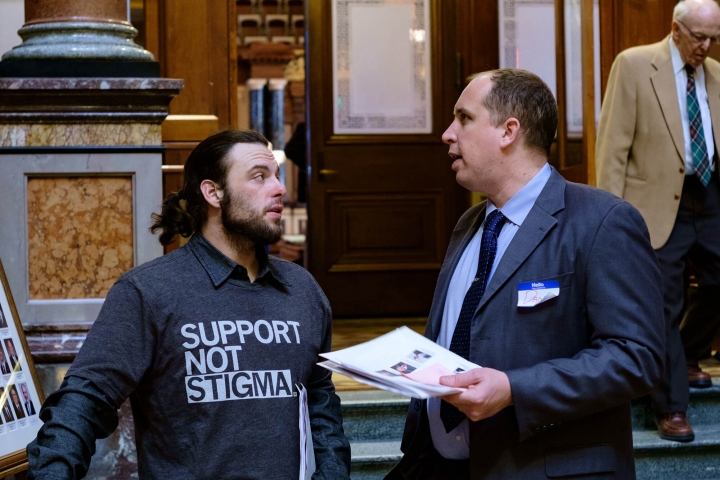
Reducing Barriers to Treatment
In 2018, IHRC developed legislation to expand access to rapid buprenorphine induction through the removal of prior authorization criteria for IA Medicaid beneficiaries. IHRC co-led the movement of this legislation through the IA legislature during the 2019 session and educated state legislators to ensure the bill’s passage through both chambers. This legislation was signed by the governor in May 2019.
What is harm reduction?
Harm reduction is the radical notion that drug users are people.
From the Harm Reduction Coalition:
Harm reduction is a set of practical strategies and ideas aimed at reducing negative consequences associated with drug use. Harm Reduction is also a movement for social justice built on a belief in, and respect for, the rights of people who use drugs.
Harm reduction incorporates a spectrum of strategies from safer use, to managed use to abstinence to meet drug users “where they’re at,” addressing conditions of use along with the use itself. Because harm reduction demands that interventions and policies designed to serve drug users reflect specific individual and community needs, there is no universal definition of or formula for implementing harm reduction.
However, HRC considers the following principles central to harm reduction practice:
Harm reduction...
Accepts, for better and or worse, that licit and illicit drug use is part of our world and chooses to work to minimize its harmful effects rather than simply ignore or condemn them.
Understands drug use as a complex, multi-faceted phenomenon that encompasses a continuum of behaviors from severe abuse to total abstinence, and acknowledges that some ways of using drugs are clearly safer than others.
Establishes quality of individual and community life and well-being–not necessarily cessation of all drug use–as the criteria for successful interventions and policies.
Calls for the non-judgmental, non-coercive provision of services and resources to people who use drugs and the communities in which they live in order to assist them in reducing attendant harm.
Ensures that drug users and those with a history of drug use routinely have a real voice in the creation of programs and policies designed to serve them.
Affirms drugs users themselves as the primary agents of reducing the harms of their drug use, and seeks to empower users to share information and support each other in strategies which meet their actual conditions of use.
Recognizes that the realities of poverty, class, racism, social isolation, past trauma, sex-based discrimination and other social inequalities affect both people’s vulnerability to and capacity for effectively dealing with drug-related harm.
Does not attempt to minimize or ignore the real and tragic harm and danger associated with licit and illicit drug use.

